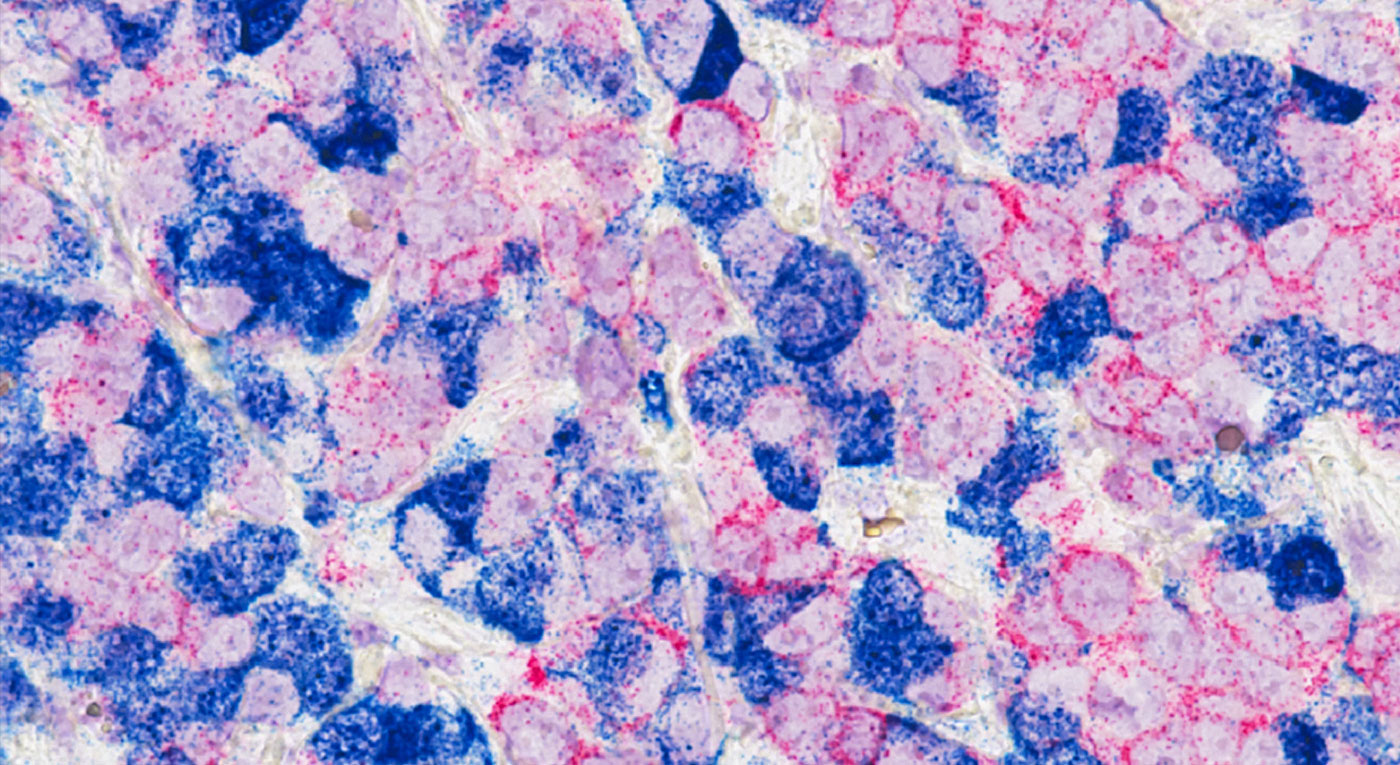Research topics
The Immunopathology Laboratory originated from the Department of Experimental Therapy at the Institute of Immunology and Experimental Therapy of the Polish Academy of Sciences. Between 1997 and 2021, the Laboratory was headed by Prof. Irena Frydecka, MD, PhD, DSc.
Since 2021, the Laboratory has been headed by Edyta Pawlak, MD, PhD, DSc, Professor at the Polish Academy of Sciences.
One of the main research topics of the Immunopathology Laboratory, headed by Edyta Pawlak, MD, PhD, DSc, Prof. PAS, is the search for new therapeutic targets in cancer, systemic and organ autoimmune diseases, and mental disorders and illnesses.
The Laboratory’s research profile focuses on studies of the mechanisms of impaired immunity in malignant tumours (both solid and haematological), autoimmune diseases, and mental disorders and illnesses. The research covers a complex and intricate molecular network, in particular intercellular and intergenic (gene-gene) interactions, as well as gene-disease associations (GDA), in order to identify risk and prognostic factors for these disorders. The research is based on a multi-omic approach – the analysis of ‘omic’ data in combination with phenotypic and environmental data, including social determinants of health (SDOH), to detect and evaluate molecular ‘profiles’ associated with health and disease states, as well as transitions from health to disease or vice versa in malignant tumours (both solid and haematological), autoimmune diseases and mental disorders, and diseases at the single-cell level, as well as at the holistic level. In addition, research is also being conducted on simultaneous multi-molecular profiling of the transcriptome and epigenome from the same cell, along with in-depth analysis of TCR and BCR using single-cell analysis technology, enabling a comprehensive study of the complex network of molecular interactions responsible for activity, disease subtype, and future recurrence. There are plans to expand the research to include spatial studies in this area.
An important thematic aspect is research into the mechanisms of impaired cellular immunity in malignant tumours (solid and haematological) and systemic and organ autoimmune diseases. Current research aims to elucidate the role of individual suppressor proteins and subpopulations of T lymphocytes and monocytes in the pathogenesis, clinical course and response to treatment of these diseases, taking into account genetic predisposition to diseases in the context of polymorphisms of genes encoding molecules that are checkpoints of immune surveillance and protein regulators of the G0/G1 phase of the cell cycle (inhibitor of cyclin-dependent kinases p27Kip1, cyclins D2 and D3) at the transcriptome and proteome levels.
